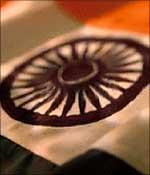 It appears that the focus of commerce minister Anand Sharma, when he unveils the new foreign trade policy, will be to eliminate unnecessary paperwork and thereby help reduce transaction costs for exporters, while retaining the basic framework of the present FTP.
It appears that the focus of commerce minister Anand Sharma, when he unveils the new foreign trade policy, will be to eliminate unnecessary paperwork and thereby help reduce transaction costs for exporters, while retaining the basic framework of the present FTP.
Here are some suggestions to help him revamp the Export Promotion Capital Goods scheme.
Presently, most capital goods attract a basic Customs duty of 7.5 per cent. The duty under the EPCG scheme is 3 per cent. So, the net saving is not much. Therefore, it is better to reduce the duty under the EPCG scheme to zero. This will help exporters create fresh capacity and modernise.
The commerce minister should abolish the requirement of producing 'installation certificates'. Instead, he should trust the exporters and call for only a declaration from them regarding installation.
This relaxation should be extended to past cases also, as quite a few past EPCG licences are awaiting redemption only for want of installation certificates. Many such cases can be closed against a declaration from the exporters.
The condition regarding maintaining average annual exports of past three years can be done away with. This condition helps those who export less and imposes greater obligation on those who keep increasing their exports.
When the scheme was introduced in 1990, the thinking was that additional exports must result when the government foregoes duty. The position has changed dramatically since 1990.
Whether any such condition is there or not, exporters would like to export more. It is the way they structure their businesses. So, it is better to do away with the onerous condition that constrains better performing exporters.
Flexibility is given under the EPCG scheme to count towards discharge of export obligation of goods capable of being manufactured by use of the capital goods imported under the EPCG authorisation, or export of any other goods manufactured in the same unit or any other unit of the exporter, or any group company (up to 50 per cent of the export obligation) of the exporter.
The flexibility can be extended to allow 100 per cent export obligation to be fulfilled by exports of 'group company' products.
Insistence on 'nexus' between import item and export product, at the time of application and grant of EPCG authorisation, can be done away with. For that matter, even the Actual User condition can be done away with, keeping in view the flexibilities already available under the scheme.
The condition regarding mentioning EPCG authorisation number on the shipping bills must be done away with. Such conditions have now become hassles. It is better to grant duty concession and insist on export performance rather than put conditions that increase unnecessary work for everyone.
More drastic simplifications can be done under the EPCG scheme. The scheme can be administered through Customs (Import of Goods at Concessional Rate of Duty for Manufacture of Excisable Goods) Rules, 1996. The redemption can be granted on the basis of exports made without insisting on bank certificate of realisation of export proceeds.
Encouragement may be given to exporters who submit annual returns of exports made under EPCG scheme. The forms for application for EPCG authorisation, clubbing of EPCG authorisations and redemption of EPCG authorisations can be considerably simplified. Dual monitoring of export obligation fulfilment can stop.
All these steps will help exporters concentrate more on boosting exports rather than getting the paperwork right.





